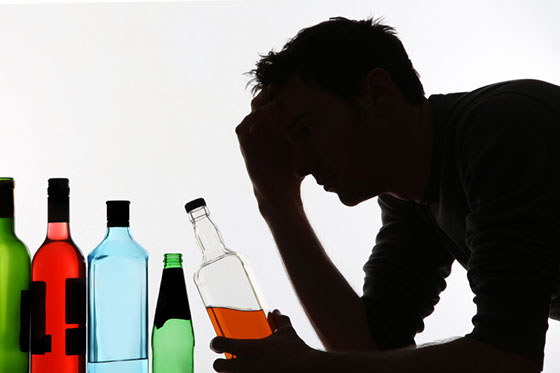
Alcoholism, alcohol dependence, or addiction; no matter what term is used to describe it, the condition is one that devastates both the individual drinker and his family. The good news is that it can usually be avoided by understanding the signs of alcohol abuse and how it progresses to a state of addiction. When alcohol abuse is recognised, proper intervention can prevent it from progressing to the next stage.
There are three types of alcohol-related problems generally recognised at the clinical level:
1. Problem drinking
2. Alcohol abuse
3. Alcohol dependence (alcoholism, addiction).
The key to preventing dependence is to intervene while the individual is still in one of the first two stages. Unfortunately, today’s alcohol rehab clinics are dealing with far too many individuals classified as long-term alcoholics.
Problem Drinking
The Health Guru’s recommends men limit their alcohol consumption to 3-4 units of alcohol per day; women should limit themselves to 2-3 units. Units are calculated by dividing the strength of an alcoholic beverage by its total volume, then multiplying that number by 1,000. The formula dictates that a small glass of wine with an alcohol content of 12% is equal to 1.5 units.
The problem drinker exceeds the recommended limits on a regular basis without necessarily getting drunk. He may adhere to the limits during the week, and then consume more on the weekends. Problem drinkers tend to drink in order to help them relax or deal with problems.
Alcohol Abuse
Alcohol abuse is defined as exceeding the recommended limits persistently and without worry. Alcohol abusers tend to be binge drinkers with a tendency to spend several days every month in a drink induced haze. As alcohol abuse continues to develop, it eventually leads to alcohol dependence. Unfortunately, the abuser who has been at it long enough may be just one or two drinks away from alcohol rehab.
Alcohol Addiction

Alcohol abuse becomes addiction when an individual reaches a point of being controlled by alcohol. The addict is a person who constantly thinks about alcohol; he is a person who is worried he will not have enough alcohol to get through the day; he is someone who will go to extraordinary lengths to get a drink.
The reality is that alcohol abuse will usually become addiction if left untreated. As a casual drinker, the best thing you can do is learn the signs of problem drinking, abuse and dependence, so that you are not caught off guard. If you recognise yourself as a potential problem drinker, get help now.
HARSHVARDHAN SINGH.



One Comment